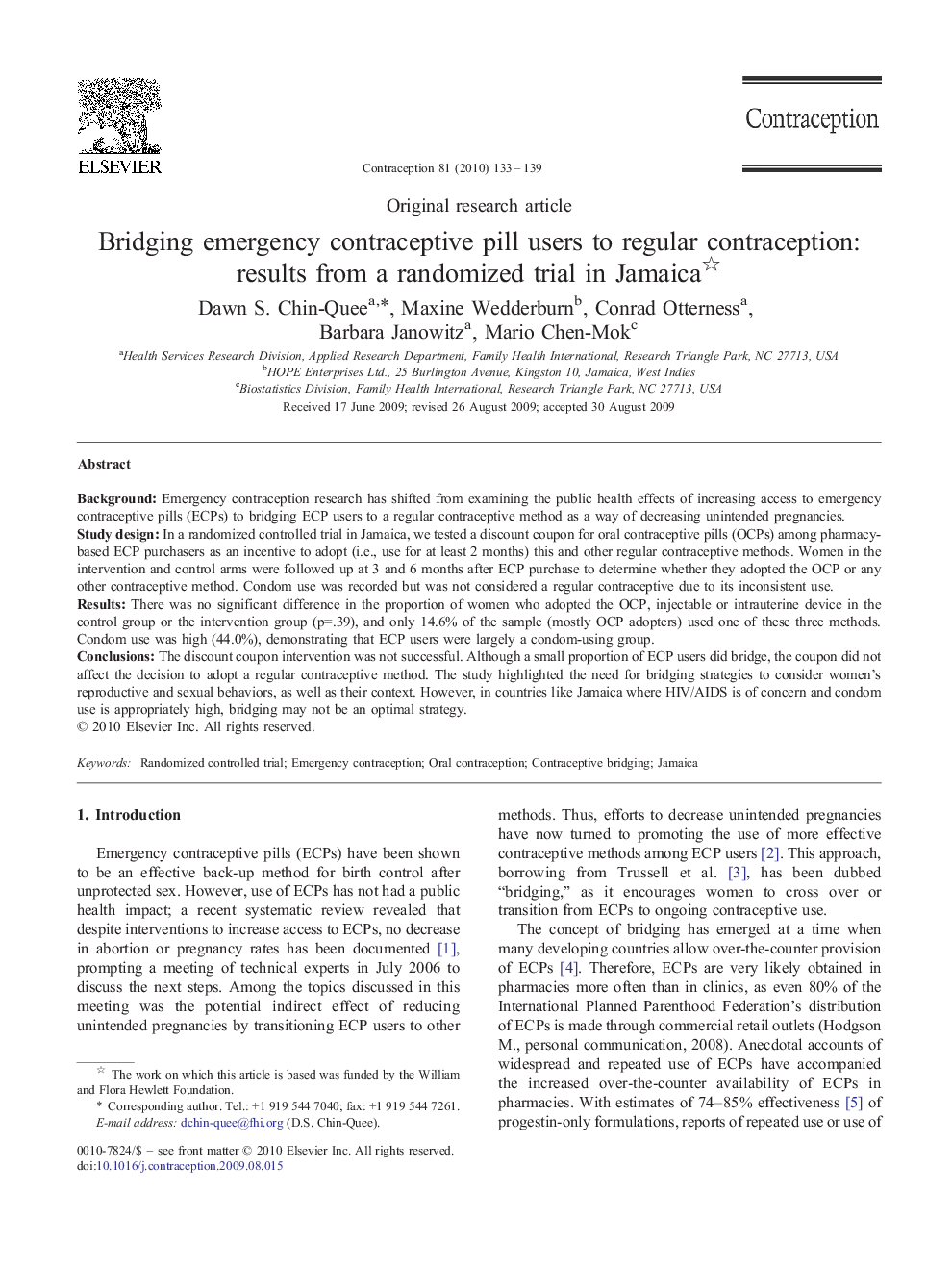| Article ID | Journal | Published Year | Pages | File Type |
|---|---|---|---|---|
| 3915134 | Contraception | 2010 | 7 Pages |
BackgroundEmergency contraception research has shifted from examining the public health effects of increasing access to emergency contraceptive pills (ECPs) to bridging ECP users to a regular contraceptive method as a way of decreasing unintended pregnancies.Study designIn a randomized controlled trial in Jamaica, we tested a discount coupon for oral contraceptive pills (OCPs) among pharmacy-based ECP purchasers as an incentive to adopt (i.e., use for at least 2 months) this and other regular contraceptive methods. Women in the intervention and control arms were followed up at 3 and 6 months after ECP purchase to determine whether they adopted the OCP or any other contraceptive method. Condom use was recorded but was not considered a regular contraceptive due to its inconsistent use.ResultsThere was no significant difference in the proportion of women who adopted the OCP, injectable or intrauterine device in the control group or the intervention group (p=.39), and only 14.6% of the sample (mostly OCP adopters) used one of these three methods. Condom use was high (44.0%), demonstrating that ECP users were largely a condom-using group.ConclusionsThe discount coupon intervention was not successful. Although a small proportion of ECP users did bridge, the coupon did not affect the decision to adopt a regular contraceptive method. The study highlighted the need for bridging strategies to consider women's reproductive and sexual behaviors, as well as their context. However, in countries like Jamaica where HIV/AIDS is of concern and condom use is appropriately high, bridging may not be an optimal strategy.
